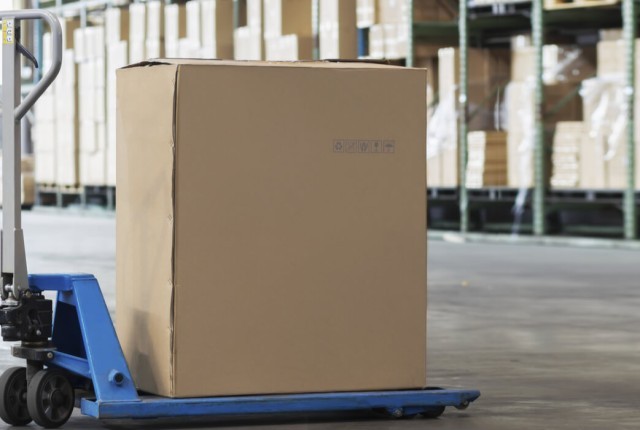Company Voluntary Arrangement (CVA)

The large recruitment company had a £22 million turnover and engaged over 1,000 staff.
Work Undertaken
The company accumulated a substantial HMRC liability due to the misapplication of VAT.
Following an attempt to negotiate payments with HMRC, the company failed to arrive at an agreement. This led to HMRC issuing a winding up petition to force the business into compulsory liquidation as the business was unable to settle its debts.
We were appointed to advise on how to respond to the winding-up petition and stabilise the business for both the short-term and long-term.
To avoid compulsory liquidation, the business was required to act fast within a short window. We proposed entering a formal payment plan in the form of a CVA to tackle HMRC arrears and continue trading without creditor pressure.
We assisted the directors of the company in preparing cash flow projections to support the CVA proposal. For the CVA to be accepted, we analysed income and expenditure to propose a payment arrangement that was sustainable. We liaised with HMRC on behalf of the debtor and the CVA was accepted.
Outcome
The CVA enabled the recruitment company to pay HMRC in affordable instalments and reduce the pressure on company cash flow.
The company was rescued from the winding up petition and pending liquidation. Over 1,000 jobs were safeguarded, and we developed a robust plan for the company to adhere to in order to ensure its long-term survival and viability.

The residential nursing care home provided long-term and respite care to 38 elderly patients and specialised in supporting individuals living with Dementia. The locally renowned care home operated since the mid-1900s and had an exemplary record for delivering exceptional services tailored to the elderly at all stages of life.
The care home started accumulating losses and soon plunged into financial distress as it no longer had the funds necessary to cover day-to-day maintenance costs or pay creditors.
To continue the delivery of essential care services to elderly service users, we were approached to help source a suitable solution to the financial problems encountered by the veteran nursing home.
Work Undertaken
We were appointed by the Trustees on the recommendation of the Bank to seek a suitable insolvency procedure as ongoing losses in the nursing home could not be funded by the overdraft.
Outcome
Our team undertook a Company Voluntary Arrangement (CVA) which allowed us to enter negotiations with creditors to revise repayment terms with a view to reduce the financial pressure on the business and preserve viability.
The CVA resulted in the care home being traded and subsequently sold to a suitable party for fair market value.
Following the CVA, all creditor debts had been paid off in full and the remaining balance was paid to the nominated Charity which had similar aims and objectives to the nursing home.

The limited company traded profitably as civil engineers since its incorporation, however, it arrived at a crossroads after accumulating an unexpected bad debt.
Work Undertaken
A large unrecoverable debt had a dramatic adverse effect on the cash flow of the company and its ability to fulfil liabilities, resulting in the company becoming contingently insolvent.
As the business no longer had enough funds to pay creditors, immense pressure was placed on the company to make repayment. Without professional guidance, the business was at high risk of facing legal action in the form of a winding up petition, resulting in compulsory liquidation.
Under professional recommendation, the company entered a Company Voluntary Arrangement (CVA) as the best course of action to allow additional time for the debts of the company to be repaid.
During the implementation of the CVA, multiple modifications to the arrangement were proposed by several creditors which involved appointing two members of our team to act as Joint Supervisors of the CVA.
Outcome
Although we would ordinarily deal with a CVA from the outset, requests from creditors resulted in our appointment where another Insolvency Practitioner firm would have naturally expected appointment.
We supervised the CVA procedure from the date of approval and oversaw the collection of monthly contributions & agreement of creditor claims.

Prior to the Covid-19 pandemic, the group was an award-winning successful airport lounge business, operating across 13 sites in the UK and Australia. Following the worldwide restrictions on travel as a result of the pandemic, the group accumulated a bank debt of £10m, Private Equity sponsor debt of £18m, lease and other guarantees which ran into several millions of pounds. Coupled with a complex group structure, the situation was becoming untenable.
Work Undertaken
Our team of specialists worked with all stakeholders to develop a Company Voluntary Arrangement (CVA) strategy where key parts of the Group were ringfenced (e.g., guarantees given in relation to underperforming divisions of the Group). New funding was injected to support the performing divisions of the Group through a Covid recovery plan, whilst strategic sale options were explored.
As part of the CVA strategy, the Private Equity sponsor wrote off significant debt and the bank participated in the voting process. This is understood to be the first ever instance of a clearing bank voting in a CVA by valuing their security.
Outcome
We assisted the Group in their sale strategy post CVA which culminated in two sales (Australian sale was completed in May 2021 and the UK sale completed in July 2021). This resulted in the successful early completion of the CVA, and a repayment of the bank bridging facility and a significantly enhanced recovery on their £10m versus the alternative faced at the start of the process.
The sale processes were particularly complicated as there was a need to decouple various commercial agreements, arrange for various landlord approvals, and deal with warranty arrangements.
We are now in the process of finalising the wind down of the various legacy companies which were not acquired in the process.

The Company traded as a haulage distribution business and was suffering poor cash flow due to increasing costs and poor performance and was under considerable pressure from HM Revenue & Customs due to PAYE and VAT arrears, however, the Company had recently won new contracts and was confident it could be profitable in the future.
After considering all of the options steps were taken to place it into Administration with a view to continuing to trade the business under the protection of Administration and proposing a Company Voluntary Arrangement by way of an exit route to enable the Company to continue trading under its existing management.
In order to achieve a position whereby the Company could trade in Administration it was necessary to agree terms with the Company’s existing factoring Company to ensure funding was in place for the continued trading and as Joint Administrator, following submission of a detailed report and discussion with the funder, we were able to secure continued facilities to enable funds to be drawn down to fund trading activities.
Once trading was stabilised as Joint Administrator I commenced drafting a proposal for a CVA and convened a meeting of creditors for consideration of the proposals. At the meeting of creditors the proposal was approved and under the terms of which the Company agreed to make monthly repayments into the CVA from its future profits for a period of 5 years.
Control of the Company trading was returned to the directors of the Company and the Company subsequently proceeded to make all payments required under the terms of the arrangement and the arrangement was successfully concluded returning payment to unsecured creditors.

The Company imported much of its stock from China and had experienced cash flow problems due to poor exchange rates and declining sales. The Company had also exceeded its credit limits with its primary supplier who were owed in excess of £750,000 and had put the Company on stop and were threatening legal action.
The Company had high staffing costs and premises costs which it had been unable to reduce despite the business having reduced turnover and needing to restructure its cost base to fit the profile of future trading performance.
The Company had significant indebtedness to the Bank in relation to both an overdraft and invoice financing.
Following a review of the business and the options available to it the directors wished to propose a Company Voluntary Arrangement and as Joint Nominee we commenced discussions with the Bank to seek continued support and funding for the business in the event of the Company continuing to trade through a CVA. We also approached the major trade supplier to establish their views on the proposed CVA as their vote at a creditors meeting would have been decisive in obtaining approval of the proposal.
Having gained support from the bank and the major supplier for the proposals in principle we then assisted the Company in reducing overheads and the Company vacated some of its premises reducing costs significantly and some redundancies were undertaken prior to issuing proposals.
After the costs had been reduced and a proposal prepared a creditors meeting was convened at which creditors, including the major supplier who had been in dispute with the Company, voted in favour of the proposals and the CVA was approved.
By taking these steps the Company was able to continue trading and, whilst some redundancies were necessary, more than 25 staff retained employment.
Our Media Centre
Read our latest news, expert opinion pieces and articles covering the the professional and financial sector.




